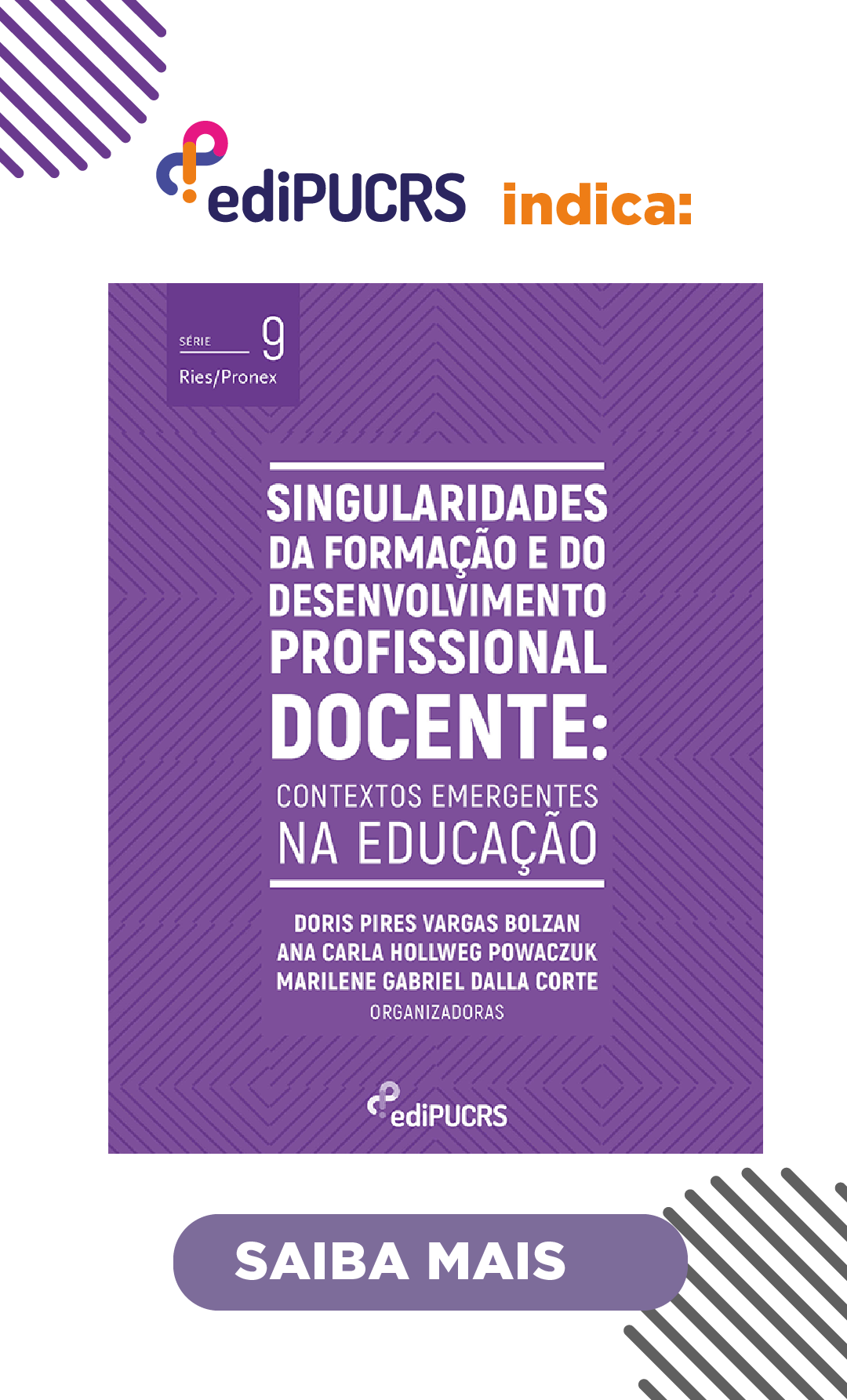John Dewey’s theory of knowledge and the teacher’s place in the educational process
DOI:
https://doi.org/10.15448/2179-8435.2020.2.35142Keywords:
Education, Experience, Human essence, Theory and practiceAbstract
This article aims to unveil the teacher’s place in the educational process from the theoretical reflections of John Dewey (1859-1952), presenting the author’s theory of knowledge, his conception of the human essence, and the relationship between theory and practice in the educational and social context. It is a theoretical review was conducted through a situated, non-systematic bibliographic research (COOPER, 1998). It was identified in the guiding principles of this philosopher that the teacher’s place in an educational process, where teaching is inclusive and the school is active, is to help the student’s conduct according to the complexity of society, seeking to enable him to develop awareness and acquire conditions to overcome the challenges presented in social life. The teacher is concerned with the challenging role of simultaneously offering help to the student by presenting him with the reality of the surrounding world, and allowing him to seek to walk independently, building his own being. These characteristics configure the demand for a teacher who no longer maintains a fundamentally authoritarian posture, who transmits the knowledge through an intellectualist class, controlling the learning of specific procedures by the students, who guides and moderates the processes in the classroom, and who be a supporter of school activities and the democratic spirit.
Downloads
References
COOPER, H. Synthesizing Research. Thousand Oaks: Sage, 1998.
DEWEY, J. The school and society, 1899. In: SOUTHERN ILLINOIS UNIVERSITY. Early works of John Dewey. Carbondale: Southern Illinois University Press, 1976. v. 1.
DEWEY, J. The child and the curriculum, 1902. In: SOUTHERN ILLINOIS UNIVERSITY. Early works of John Dewey. Carbondale: Southern Illinois University Press, 1976. v. 3.
DEWEY, J. Democracy and education: An introduction to the philosophy of education. New York: The MacmillanCompany, 1916.
DEWEY, J. Human Nature and Conduct. New York: The Modern Library,1930.
DEWEY, J. My Pedagogic Creed. In: DEWEY, J. Dewey on Education: Selections. New York: Teachers College Columbia University Ed., 1959, p. 19-32.
DEWEY, J. Vida e educação. Tradução Anísio Teixeira. 6. ed. São Paulo: Melhoramentos,1967.
DEWEY, J. Essays in experimental logic. New York: Dover publications,1953.444p.
DEWEY, J. From absolutism to experimentalism. In: ADAMS, G.P., MONTAGUE, W.P. Contemporary American philosophy. New York: The MacmillanCo., 1930. v. 2, p. 12-27.
DEWEY, J. Experiência e educação. Tradução: Anísio Teixeira. São Paulo: Nacional, 1971.
DEWEY, J. A arte como experiência. In: DEWEY, John. Os Pensadores. São Paulo: Abril Cultural, 1980.
DEWEY, J. Experiência y Educación. Buenos Aires: Editorial Losada, 1958.
DEWEY, J. How We Think: A Restatement of the Relation of Reflective Thinking. [S. l.]: D. C.Heath and Company, 1933.
DEWEY, J. O desenvolvimento do Pragmatismo Americano. Cognitio-estudos: Revista Eletrônica de Filosofia, v. 5, n.2. São Paulo: PUC-SP, 2008.
DEWEY, J. The child and the curriculum and the school and society. Chicago: The University of Chicago Press, 1956.
GALIANI, C.; MACHADO, M. C. G. As propostas educacionais de John Dewey para uma sociedade democrática. Revista Educação em Questão, v. 21, n. 7, p. 116-135, 2004.
LINS, Maria Judith Sucupira da Costa. A Filosofia da Educação de John Dewey: reflexões e perspectivas atuais para a escola brasileira. Filosofia e Educação, Campinas, v. 7, n. 2, p. 19-46, 2015. https://doi.org/10.20396/rfe.v7i2.8637547.
MURARO, Darcísio Natal. A Concepção de Infância em John Dewey. In: CONGRESSO NACIONAL DE EDUCAÇÃO – EDUCERE, 12, . 26 a 29 de outubro 2015, Curitiba. Anais [...]. Porto Alegre: EDUCERE, 2015. p. 116537-6552.
PIVATTO, Pergentino Stefano. Visão de homem na educação e o problema da humanização. Educação, Porto Alegre, Ano 30, n. 2 (62), p. 337-363, maio/ago. 2007.
SAMPIERI, R. H.; COLLADO, C. F.; LUCIO, M. P. B. Metodologia de pesquisa. 5. ed. Porto Alegre: Penso, 2013.
THIOLLENT, Michel. Metodologia da pesquisa-ação. 2. ed. São Paulo: Cortez, 1986.
WESTBROOK, R. B. DEWEY, J. In: WESTBROOK, R. B; TEIXEIRA, A. T.; ROMÃO, J. E.; RODRIGUES, V. L. R. (org.). John Dewey. Recife: Fundação Joaquim Nabuco, Editora Massangana, 2010.
Downloads
Published
How to Cite
Issue
Section
License
Copyright (c) 2020 Educação Por Escrito

This work is licensed under a Creative Commons Attribution 4.0 International License.
Copyright
The submission of originals to Educação Por Escrito implies the transfer by the authors of the right for publication. Authors retain copyright and grant the journal right of first publication. If the authors wish to include the same data into another publication, they must cite Educação Por Escrito as the site of original publication.
Creative Commons License
Except where otherwise specified, material published in this journal is licensed under a Creative Commons Attribution 4.0 International license, which allows unrestricted use, distribution and reproduction in any medium, provided the original publication is correctly cited.





